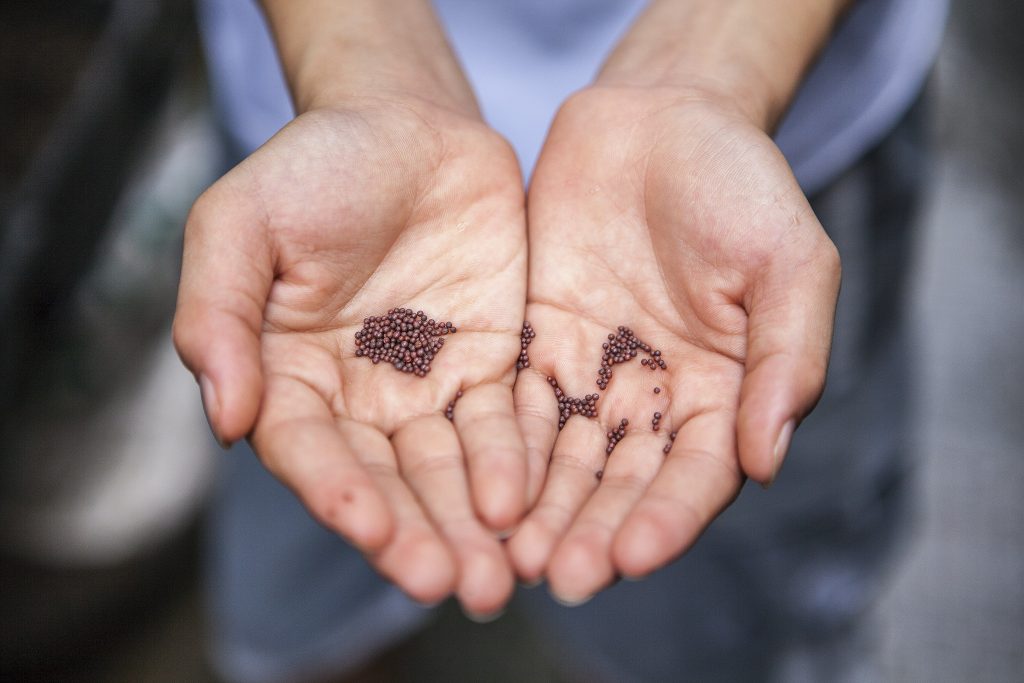Ancient Seeds Are The Key To Combating Climate Change?
Researchers are preserving, studying, and storing ancient seeds in an effort to increase the resiliency of certain crops as the effects of climate change worsen in the coming years.
This article is more than 2 years old

As climate change continues to ravage the planet, researchers are working to preserve our vegetation by studying ancient seeds. They are kept inside a large freezer room at the International Center for Agricultural Research in the Dry Areas (ICARDA) and may hold the key to helping the planet’s food supply adapt to brutal weather conditions.
These ancient seeds are stored at a temperature of minus four degrees Fahrenheit. After being threshed and cleaned, they are sealed inside small foil packets and placed on rows of sliding metal shelves. According to NPR, the gene bank holds as many as 120,000 varieties of plants. And most of these seeds come from crops as old as agriculture itself.
The ancient seeds were sown in the Fertile Crescent region where farming began about 11,000 years ago. Other seeds were found by researchers in the past 40 years as they searched the forests in Asia, the Middle East, and North Africa. During that time they hoped to find crops similar to wheat and anything else that people eat.
Formed in the 1970s, the research center initially assisted farmers in hot, dry climates. Now, in addition to storing ancient seeds, the facility also sends specimens to scientists in Europe, Canada, and the United States. Together, these scientific teams help lead breakthroughs in improving the resilience of some crops to the effects of climate change.
Speaking to NPR about the ancient seeds, Mariana Yazbek said the bank is essentially collecting a sample of diversity from nature. As the manager of the center, she said the facility serves as an insurance policy for humanity. Along with climate change, seeds are saved in case nuclear war or other catastrophic events wipe out an entire plant species.
The center replicates the ancient seeds by planting and harvesting them in the Bekaa Valley fields. ICARDA then sends a copy to the Global Seed or “Doomsday” Vault in Svalbard, Norway which is an island cluster in the Arctic Ocean. The seeds are then used to develop new varieties of crops that can withstand heat and drought.
“These wild relatives of crops have been evolving on Earth for millions of years,” Yazbek told NPR. Because they witnessed so many different climates, the traits that helped them adapt and survive are stored in their DNA. “We have this diversity and it can be a tool to help us face the future,” she continued. The collection of ancient seeds is funded by governments and international organizations.
The International Center for Agricultural Research in the Dry Areas is also helping American farmers. Dil Thavarajah, a Professor at Clemson University, has worked with researchers for over a decade to improve the nutritional quality of lentils. Using ancient lentil seeds native to the Mediterranean, she discovered that they could help tackle obesity.
The discovery was made by extracting genetic material from ancient seeds to grow crops containing low-digestible carbohydrates. Also known as prebiotic carbohydrates, these compounds help regulate a person’s weight by modulating gut health. With such a large collection in the ICARDA seed vault, this is only the beginning of how ancient commodities can help fight changing climate.



